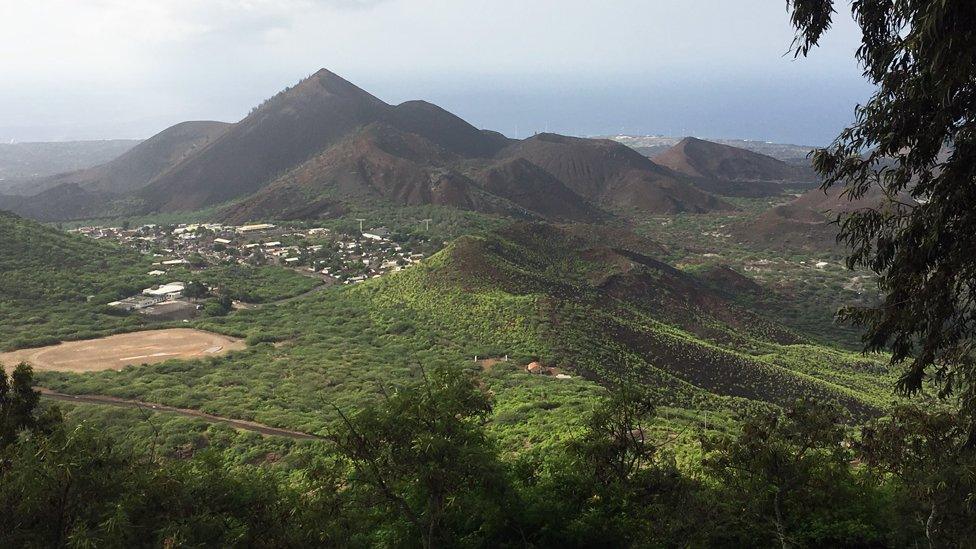RSPB conservationists home after epic remote island voyage
- Published
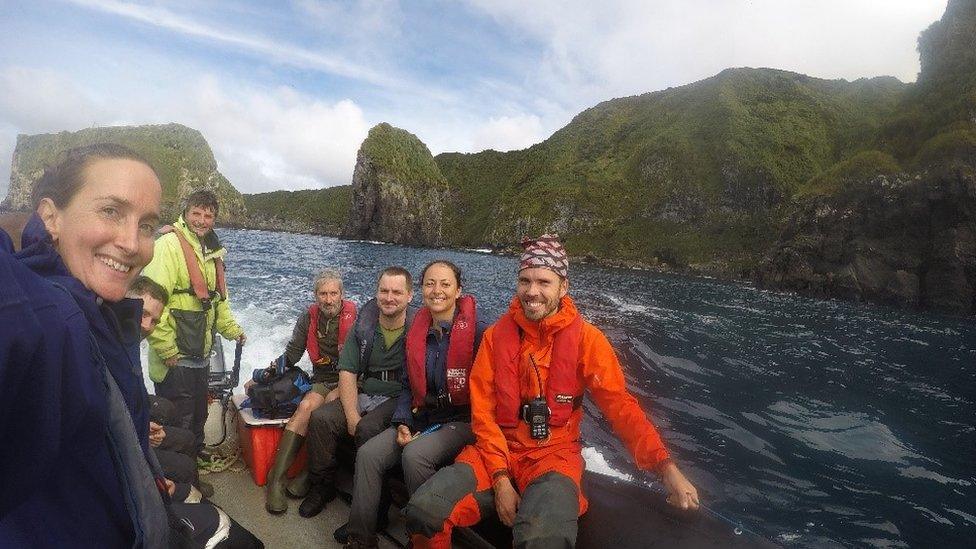
A group of conservationists stranded on one of the world's most remote islands have returned to the UK after a 12-day voyage and an RAF military flight.
The team of 12 from the Royal Society for the Protection of Birds planned to spend a year on Gough Island protecting seabirds from predatory giant mice.
But the project was postponed due to the coronavirus crisis, and the team could not return via South Africa.
They sailed to Ascension Island, where they took an RAF flight back to the UK.
Four Britons were part of the international group who became stranded on Gough Island, a British Overseas Territory in the South Atlantic, about 1,700 miles (2,735km) west of Cape Town, South Africa.
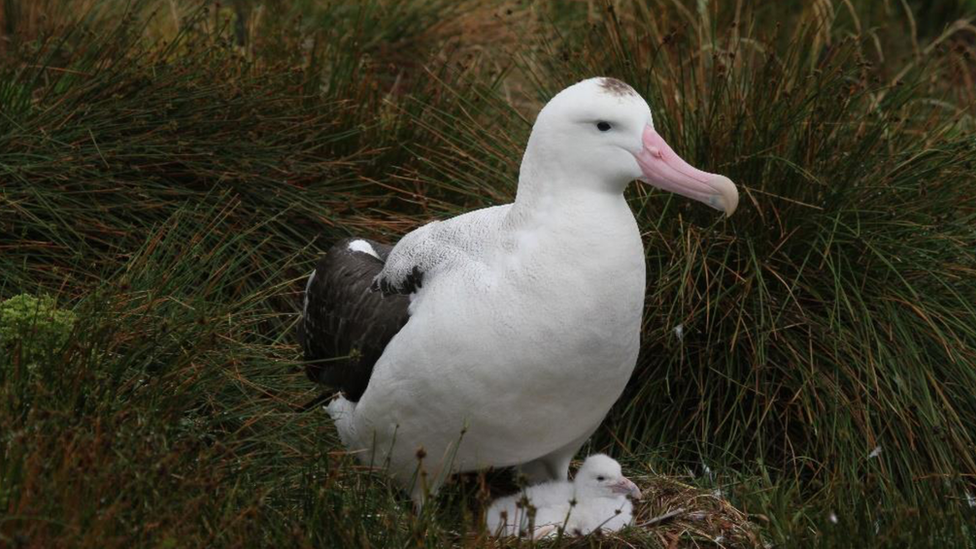
The group travelled by yacht to the uninhabited island at the end of February to start work on a restoration programme to completely eradicate the oversized rodents that have been attacking seabirds and killing their chicks.
But the project had to be postponed amid the coronavirus outbreak.
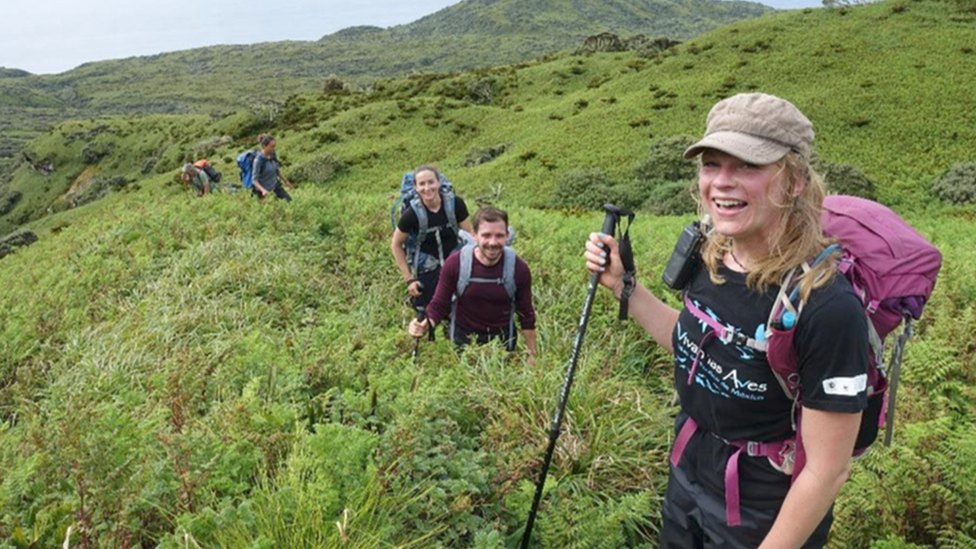
Unable to return via South Africa due to lockdown travel restrictions, the group considered travelling to St Helena or the Falkland Islands.
In the end, they spent 12 days sailing almost 2,000 nautical miles on their expedition yacht, the E.S.V Evohe, to Ascension Island, another island in the South Atlantic.
From there, the Foreign and Commonwealth Office (FCO) arranged for them to take an RAF flight - which was delivering essential supplies to the island - back to the UK.
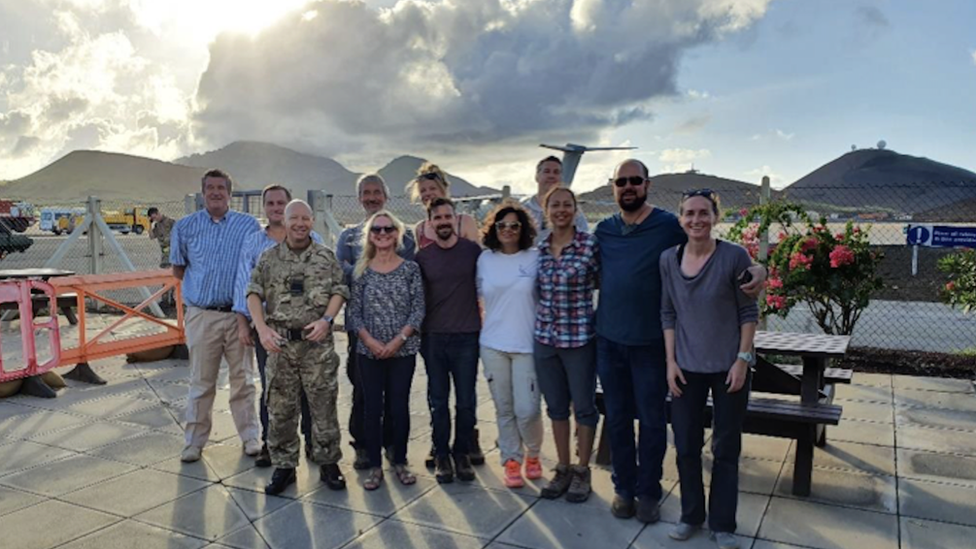
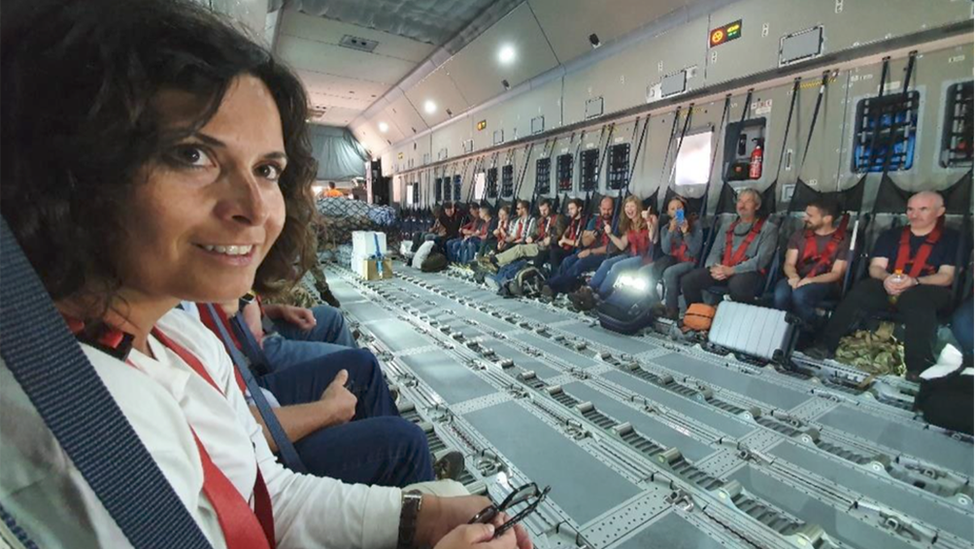
As well as the four Britons, the team also included several South Africans and others from Australia, New Zealand, the United States and Greece.
Kate Lawrence, who was part of the RSPB group and lives in New Zealand, said: "Sailing in that boat for 12 days, looking at the endless blue ocean around me, made the world feel quite big, in contrast to the previous ease of air travel and the rapid spread of Covid-19, which makes the world seem so small."

Gough Island: In focus
The uninhabited Gough Island is part of the British Overseas Territory Tristan da Cunha.
Millions of birds on the World Heritage Site are killed every year by oversized mice introduced by sailors during the 19th century.
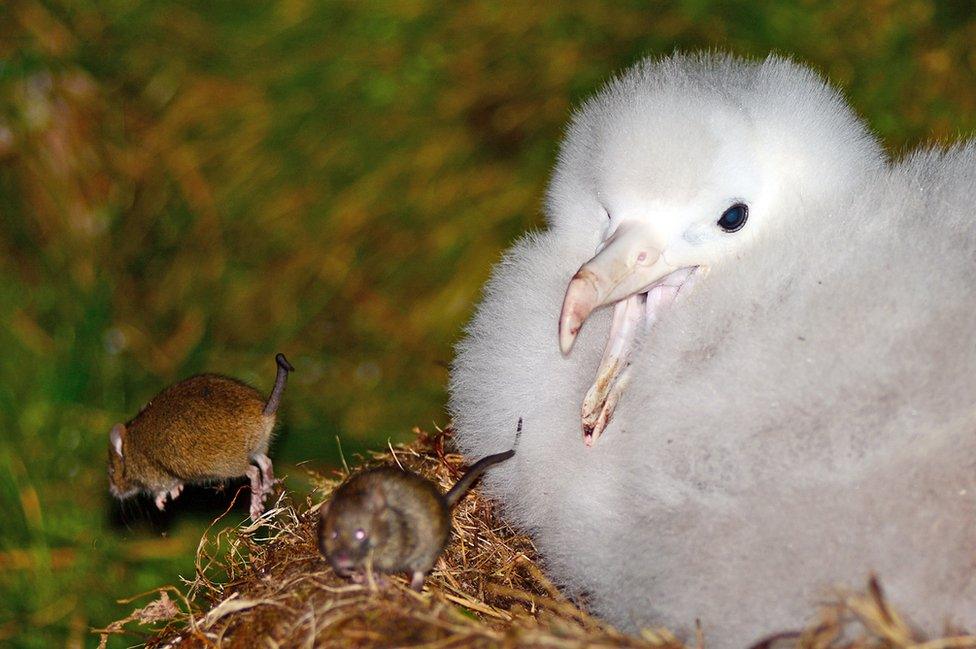
The rodents - about twice as big as normal mice - eat the chicks alive and have been seen attacking adult albatrosses.

Andrew Callender, programme executive of the RSPB Gough Project and who is based in the UK, said the team had been making "tremendous progress" on the restoration scheme before it had to be postponed, which came as "quite a blow" to those involved.
The charity hopes to resume the project on the island next year, if conditions allow and additional funds can be raised.
- Published6 December 2019
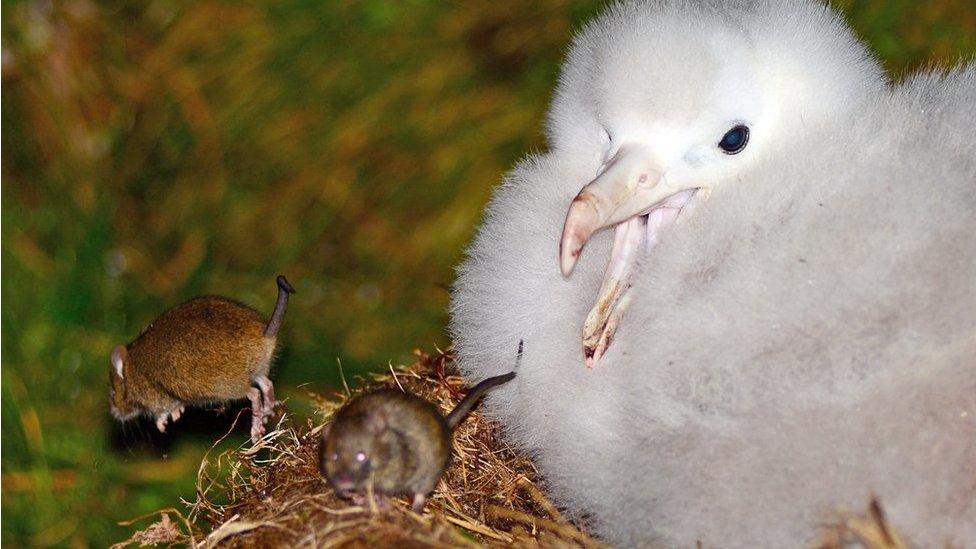
- Published22 October 2018
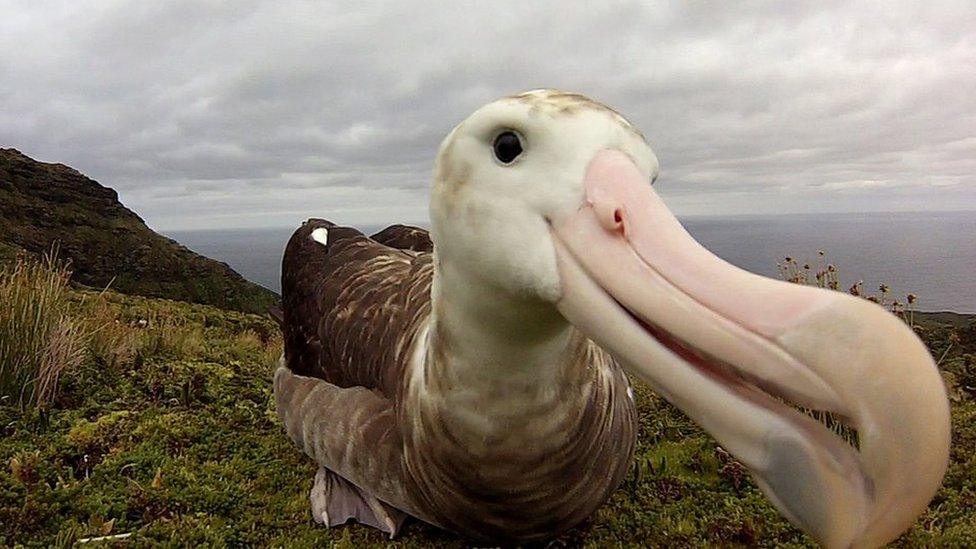
- Published19 April 2016
